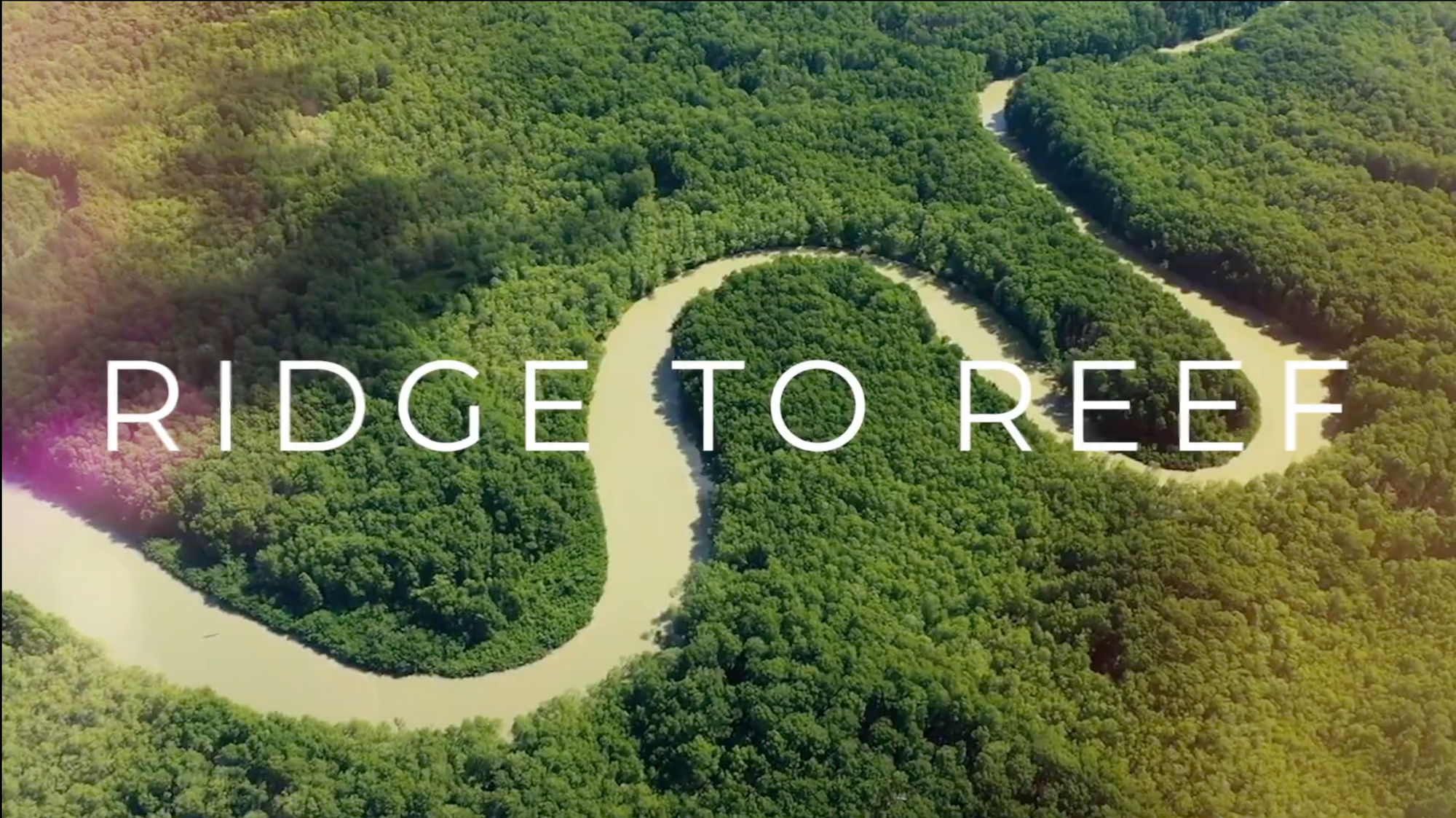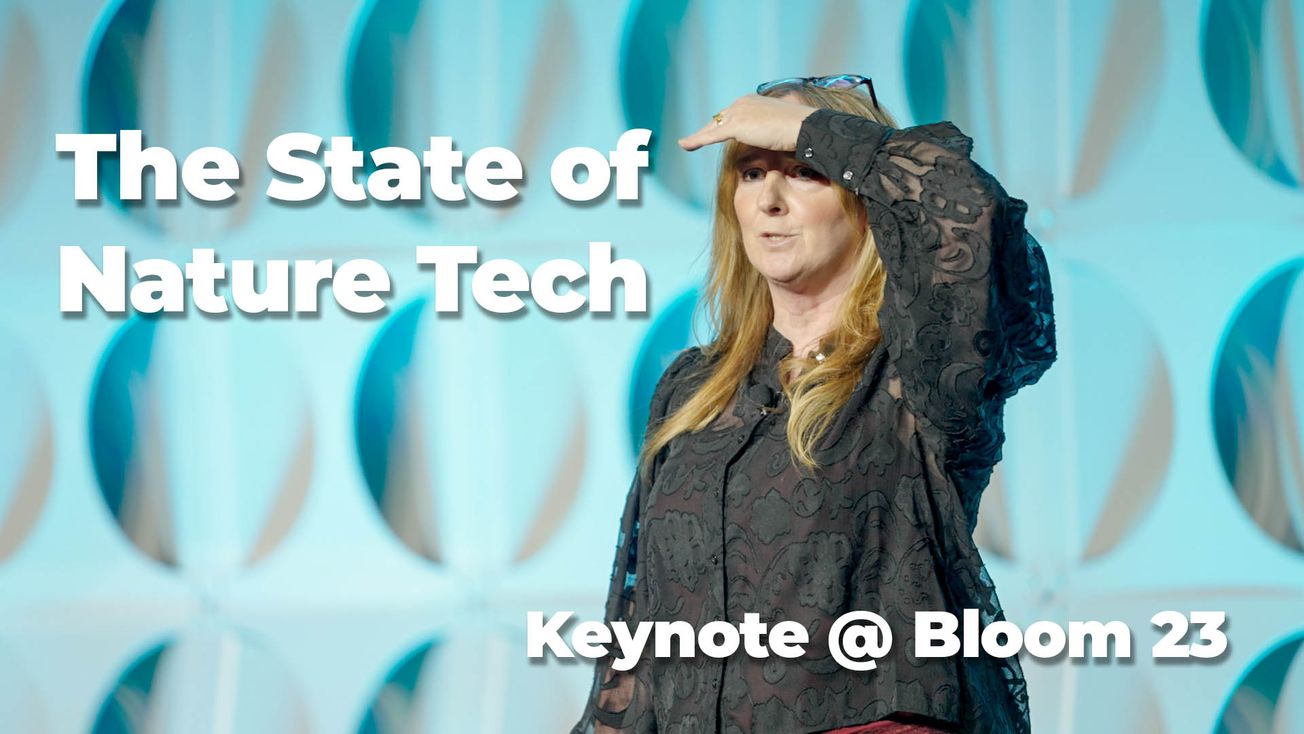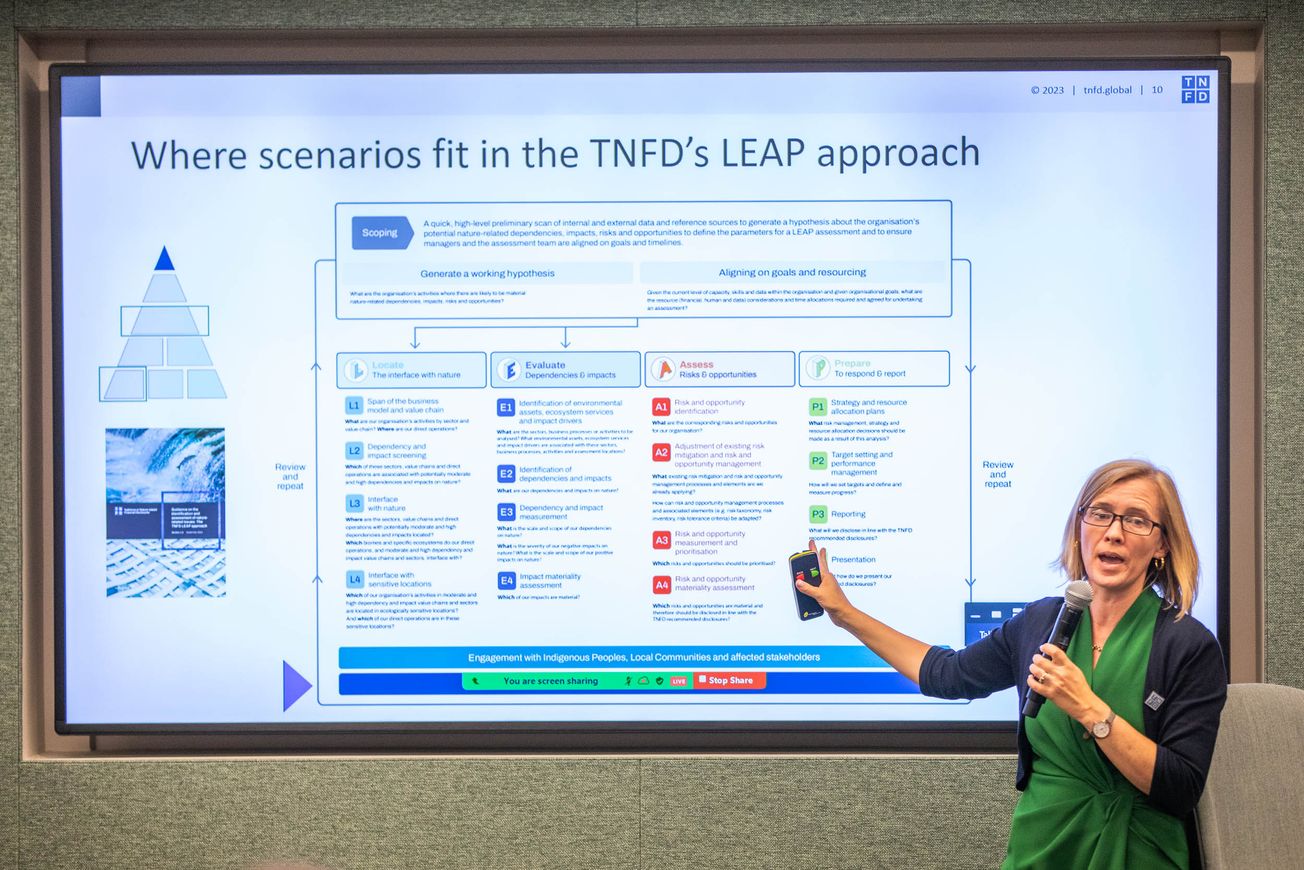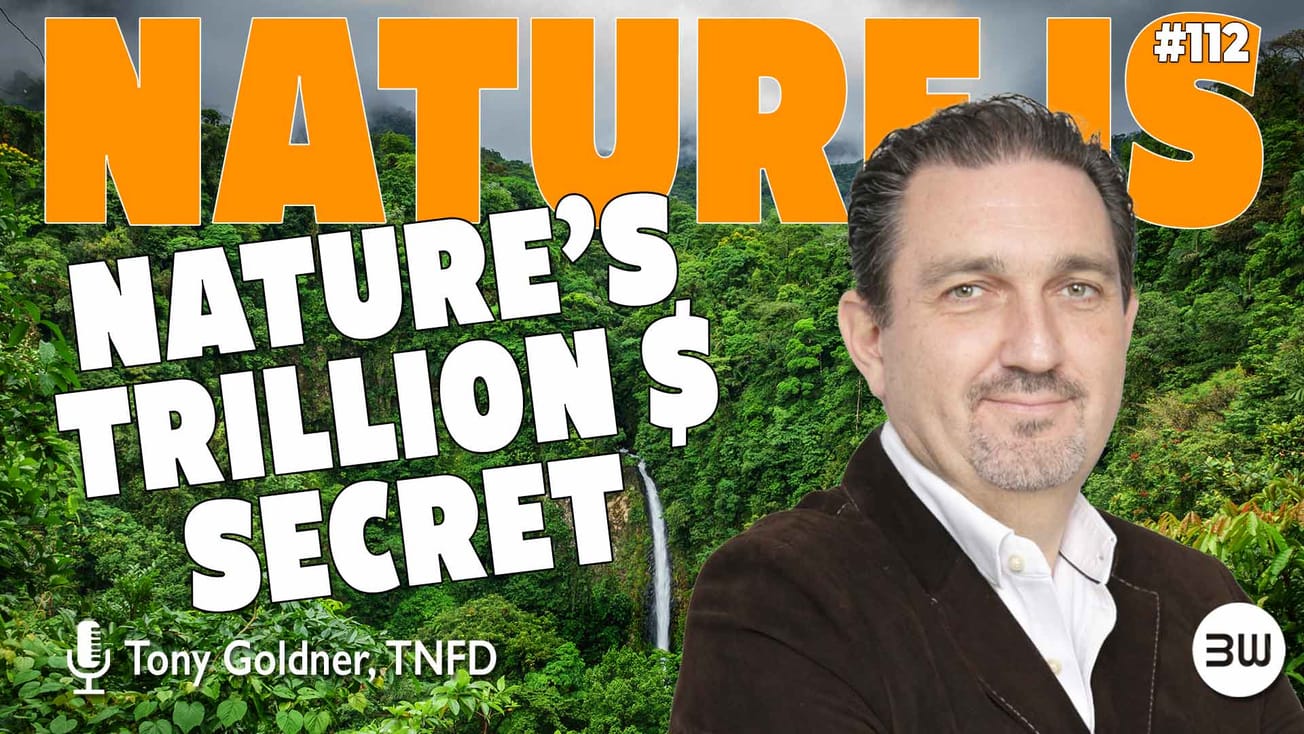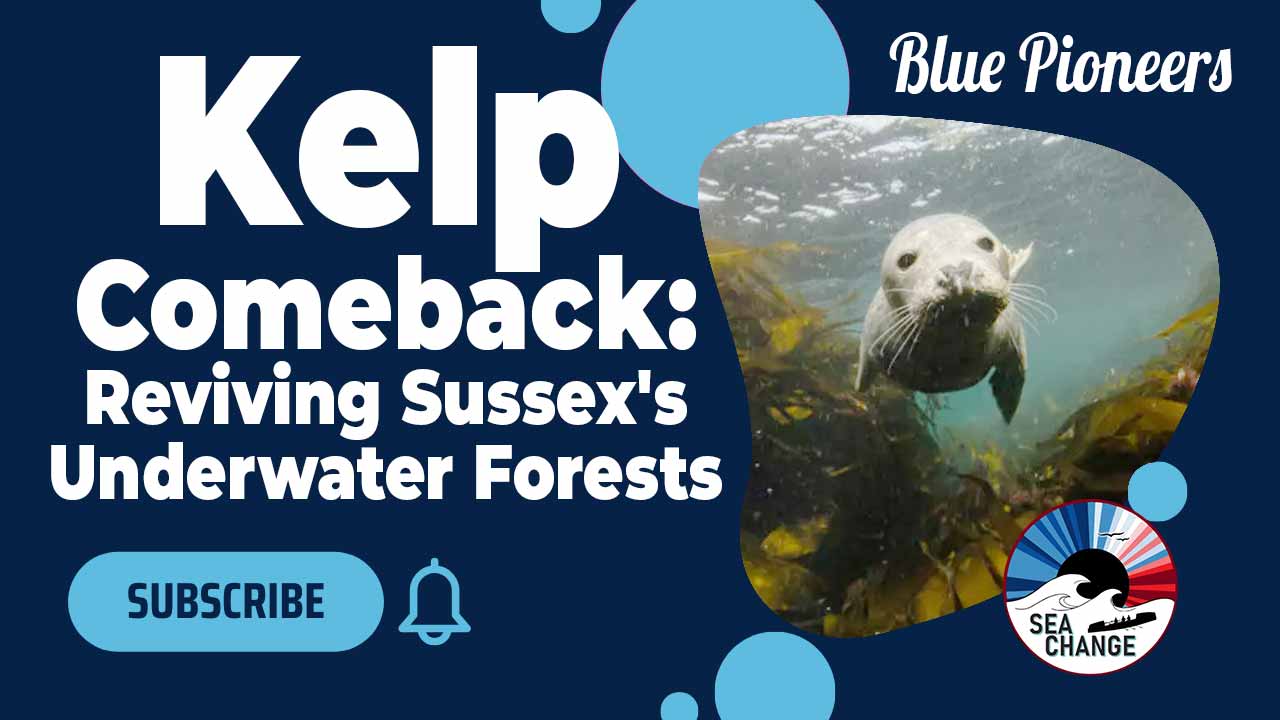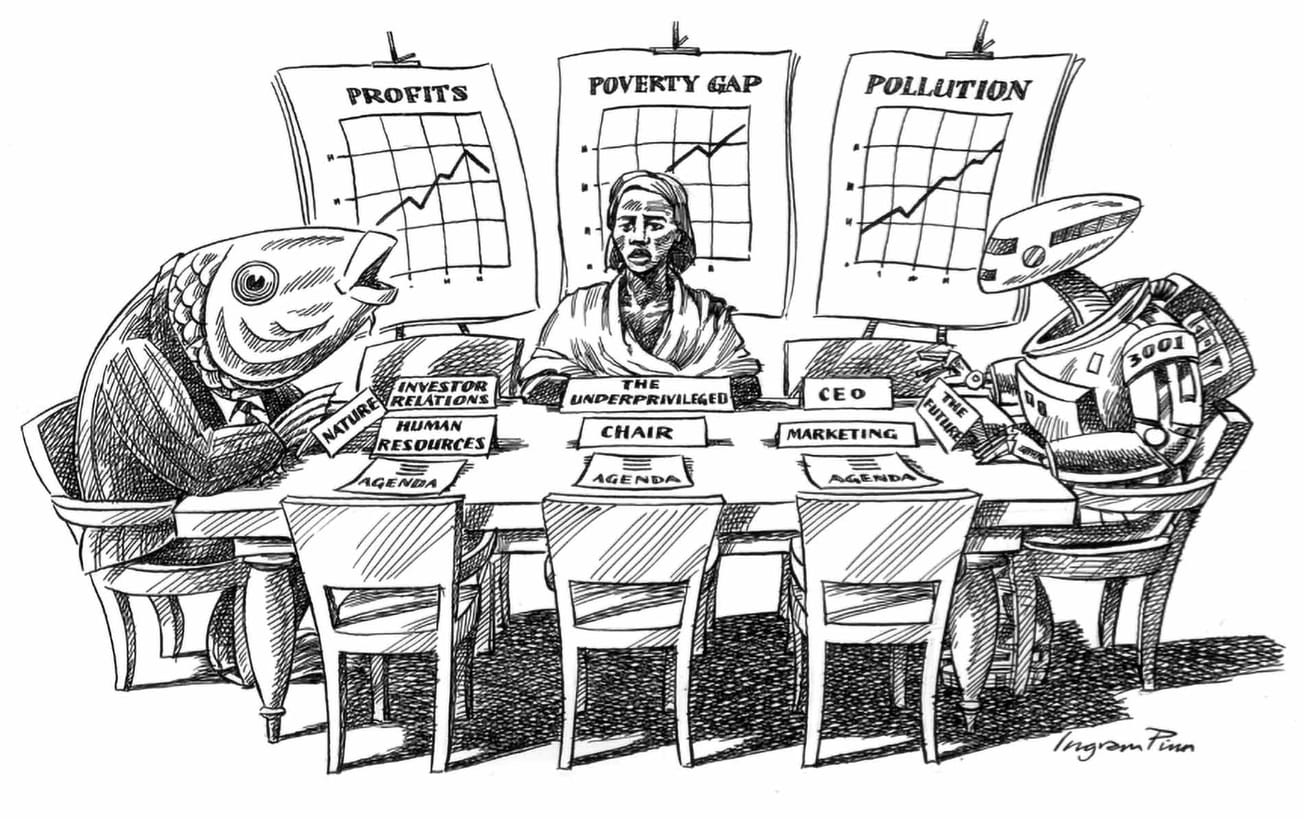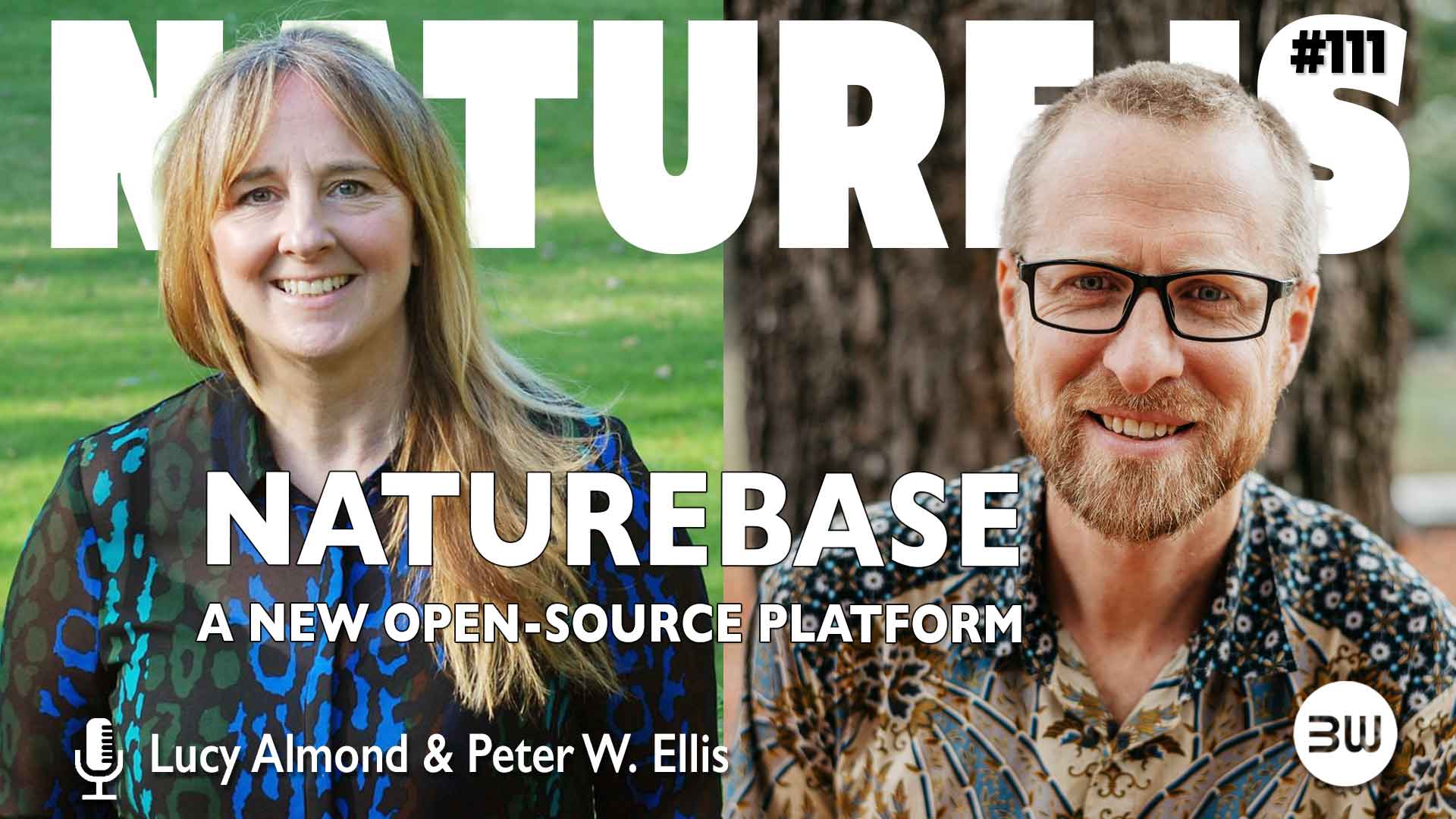MRV stands for Measurement, Reporting, and Verification. Measurement refers to the estimation of environmental indicators such greenhouse gas emissions (GHG) and carbon dioxide Removal (CDR) and can also refer to biodiversity metrics or soil organic carbon. Reporting includes transparency of measurements and GHG removal details. Verification ensures that scientists or computer algorithms can inspect reporting and
Raviv Turner spoke about the open MRV protocol that serves to ingest data, store, and serve data. This process is verified in a secure decentralized infrastructure. He went on to talk about his projects in Tierras Vivas, and Costa Rica and their goal of sequestering 6 million CO2 metric tons through regenerative grazing on 87,000 hectares of farmland. Lastly, the coalition is able to monitor this progress through remote sensing. This includes satellite imaging, NDVI NASA's LANCE data (land, atmosphere, near real-time, capability for EOS), and planes. Soil formation can be further monitored by electrochemical probes and microbial biosensors, which enables rapid and sensitive detection for environmental monitoring.
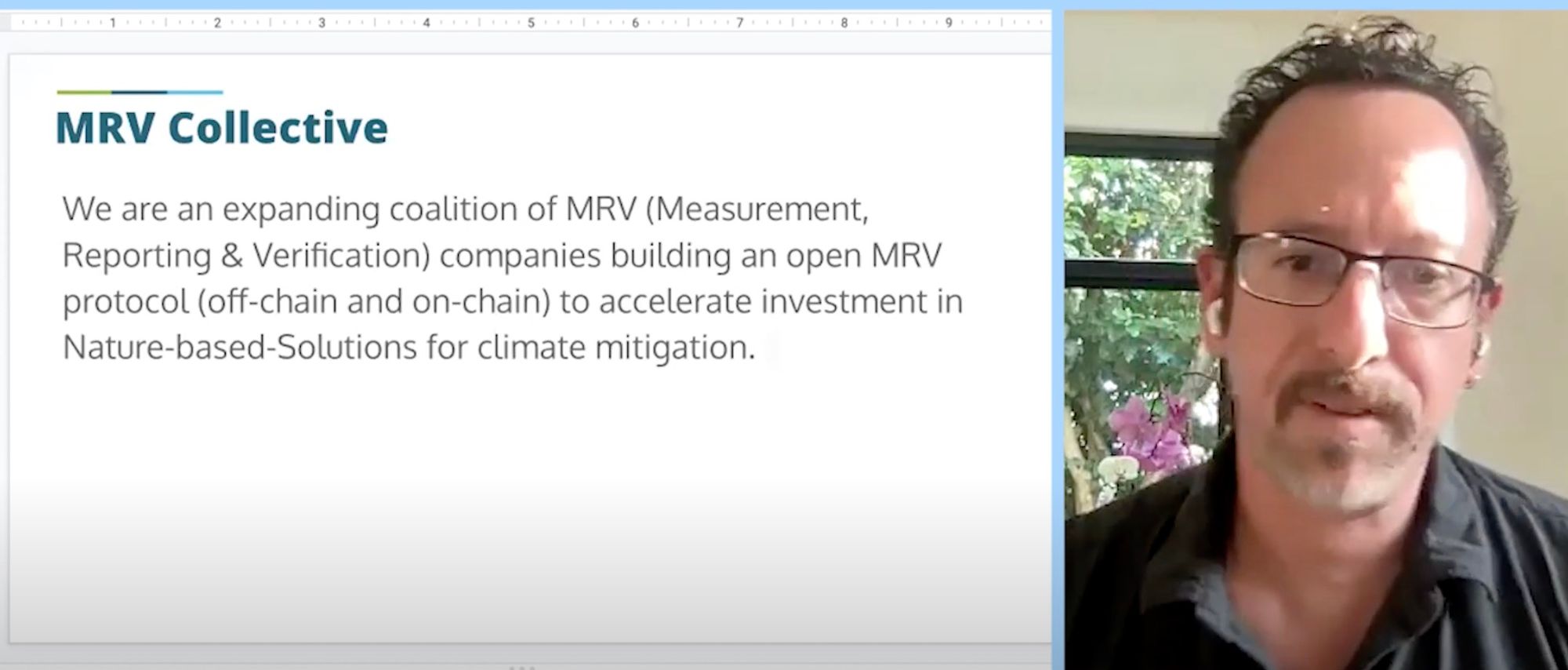
Frederic Fournier continued with the next talk.
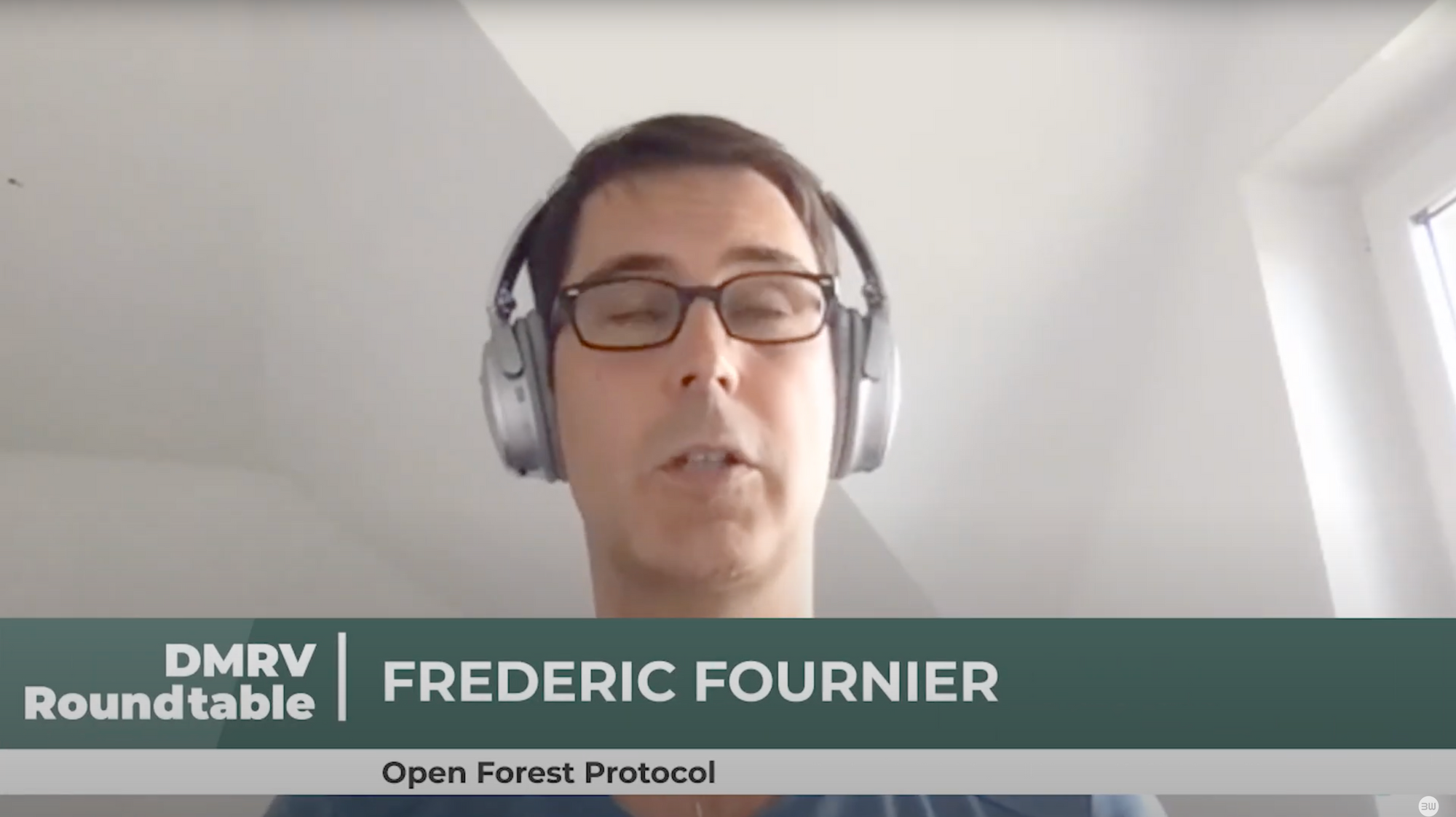
Sam Bennetts dove into Regen's ledger and the purpose of their three modules. The groups module manages on-chain multisig accounts and digital MRV. The eco-credit module creates and manages the trading of the credits. The third module ecological claims data allows for an audit trail where the complex metadata is kept. All three of the modules allow efficient governance for each phase of the livecycle of eco-credit mining. Sam spoke on the verification of vineyard grazing in Northern California. NDVI imagery identifies plant health and nutrient availability. By studying these changes in NDVI, we can identify when grazing occurs in the vineyard parcels. He said there are over 12 million hectares of regenerative agriculture established with many types of eco-credits being developed.
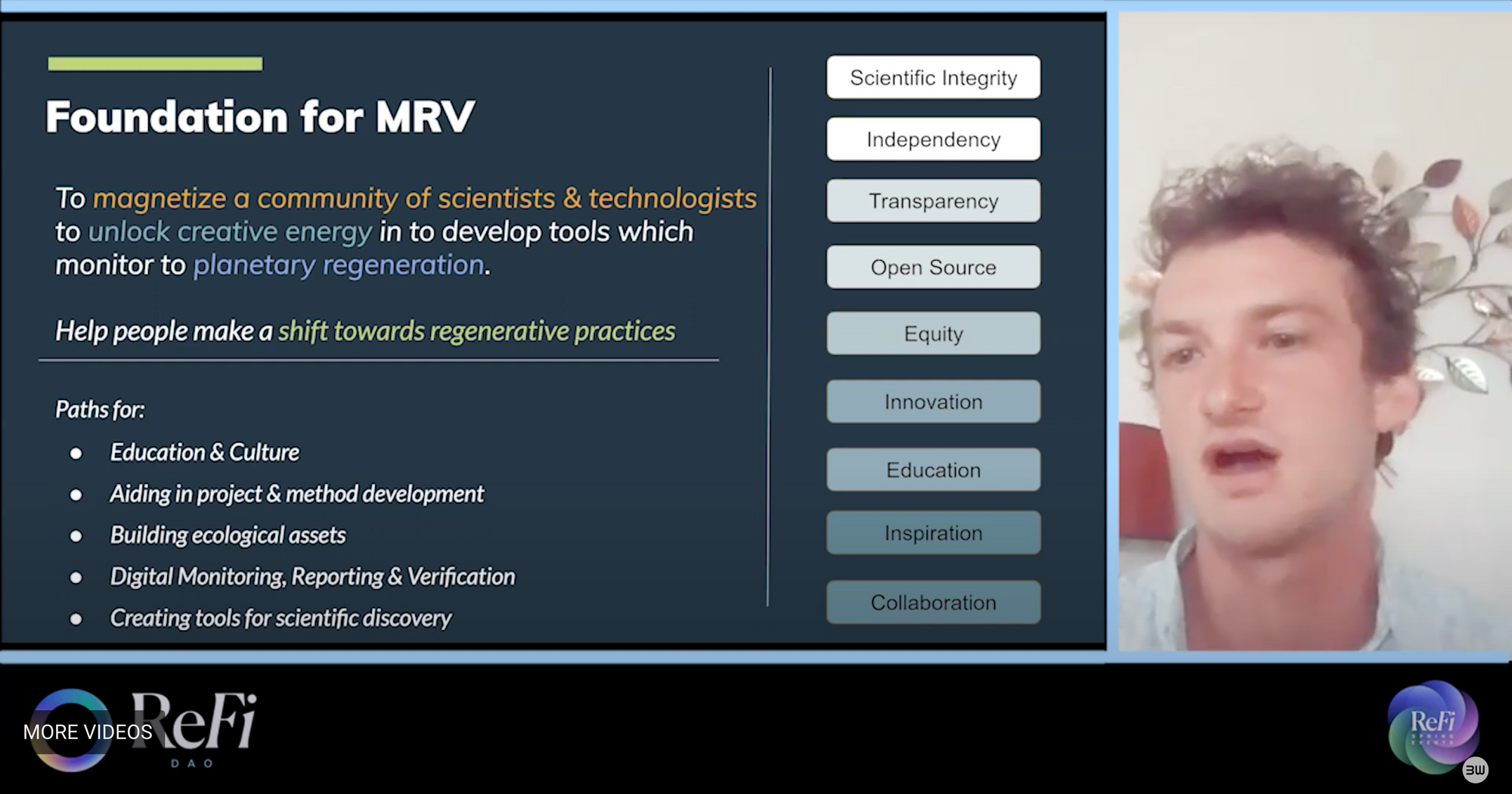
OSHO at dClimate: There's a decentralized place for climate data where people can contirbute to climate resilience applications. Help enable better analytics in the carbon space and ReFi. NGOs can’t bring enough supply on for the market participants. Verra and gold standard lack verification infrastrcture to keep up with the demand. Satellite based system to estimate the amount of carbon in a forest is able to verify these projects immediately Mix of computer visiona and AI models. Not only do they do verification really quickly- traditional registries can take 5-10 years. Ground Truth? They look at a lot of what they are building is blockchain agnostic. They package it as a rest API. in case of the carbon product, they can tokenize carbon on different blockchains? They use satellite to get aboveground biomass. Use chainlink node to get the tiles around it? Tokenize carbon and leave the land around it, they believe they can leave the land rights. You can buy nfts that hold a specific amount of carbon in a forest. What is vera? Pull the NFT’s together to make interesting derivatives. Countries get cash flow, the satellite continues to monitor deforestation, and their funding gets slashed the more deforestation.
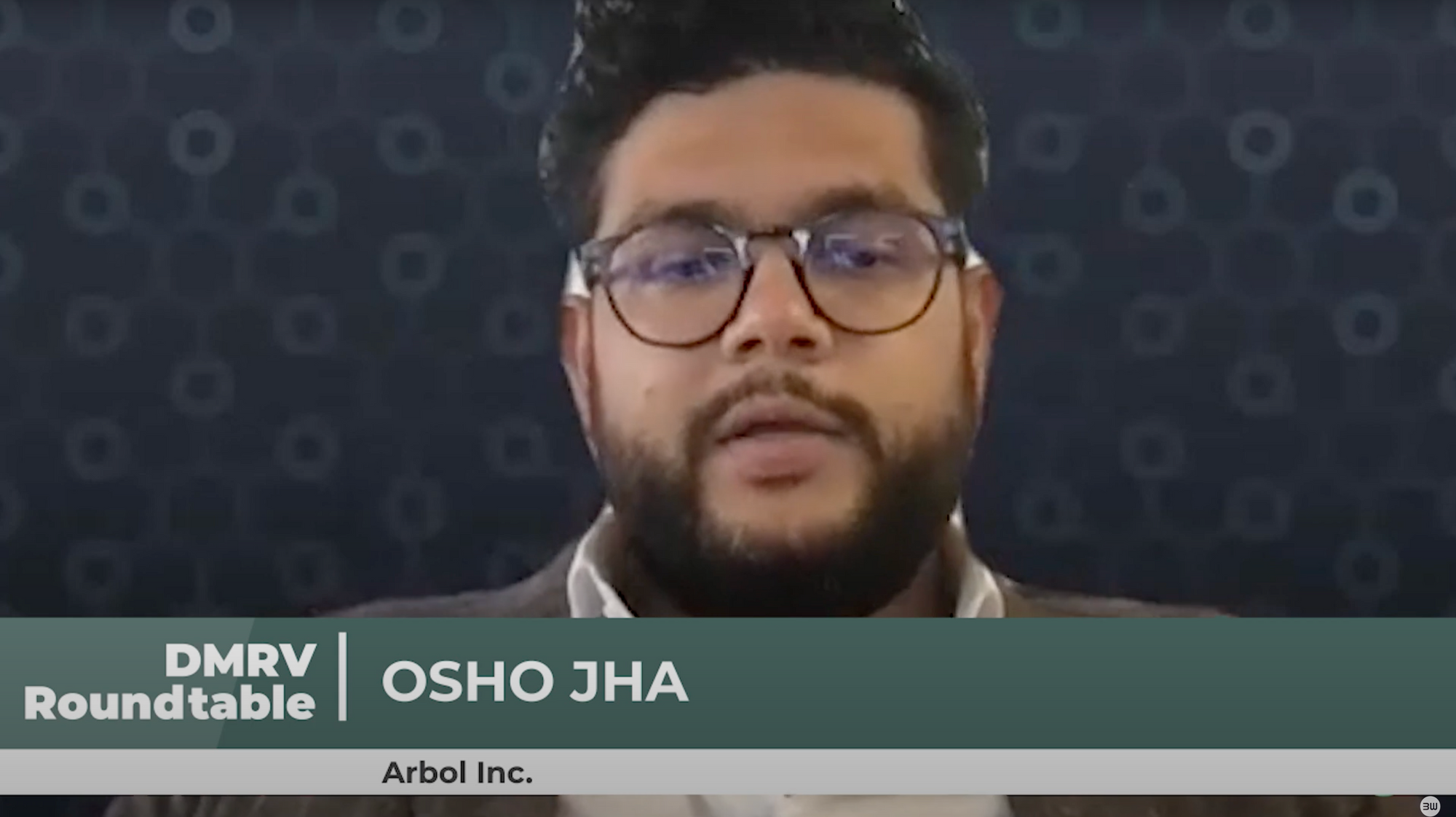
WES from HBAR (Hedera)Building an ecosystem on Hedera. 10s of thousands of transactions in seconds for low fees. Blockchain needs some kind of mechanism to slow down its growth since it only expands through one chain and the forks need to be cut off. Hedera's hashgraph structure allows it to grow quickly since new data is always woven back into the ledger. Wes talked about granular traceability and public private key pairs importance on generating trsuted attestations for value creation. This key pair works based on certified actors poerforming specific roles with the trust chain/MRV process for a given modular benefit project. Audit layer-large emission reduction platforms like in kenya. Water specification for water rights training. Not just building open source MRV. Enable these to work on Hedera completely audible.Dynamic NFT?Weekly community call with HBAR and Hedera. Lastly, he spoke about DOVU Earth run by the HBAR foundation where farmers farm the carbon and DOVU is able to verifiy the stored carbon in the soil. DOVU mints a dynamic NFT and list in on their marketplace and the farmer is paid for offsetting carbon when that NFT is sold. Dynamic NFT's is a smart contract that can communicate with real world data and can fully integrate with existing infrastructure. These NFT's will establish unlimited evidence and transparency on the DOVU market.
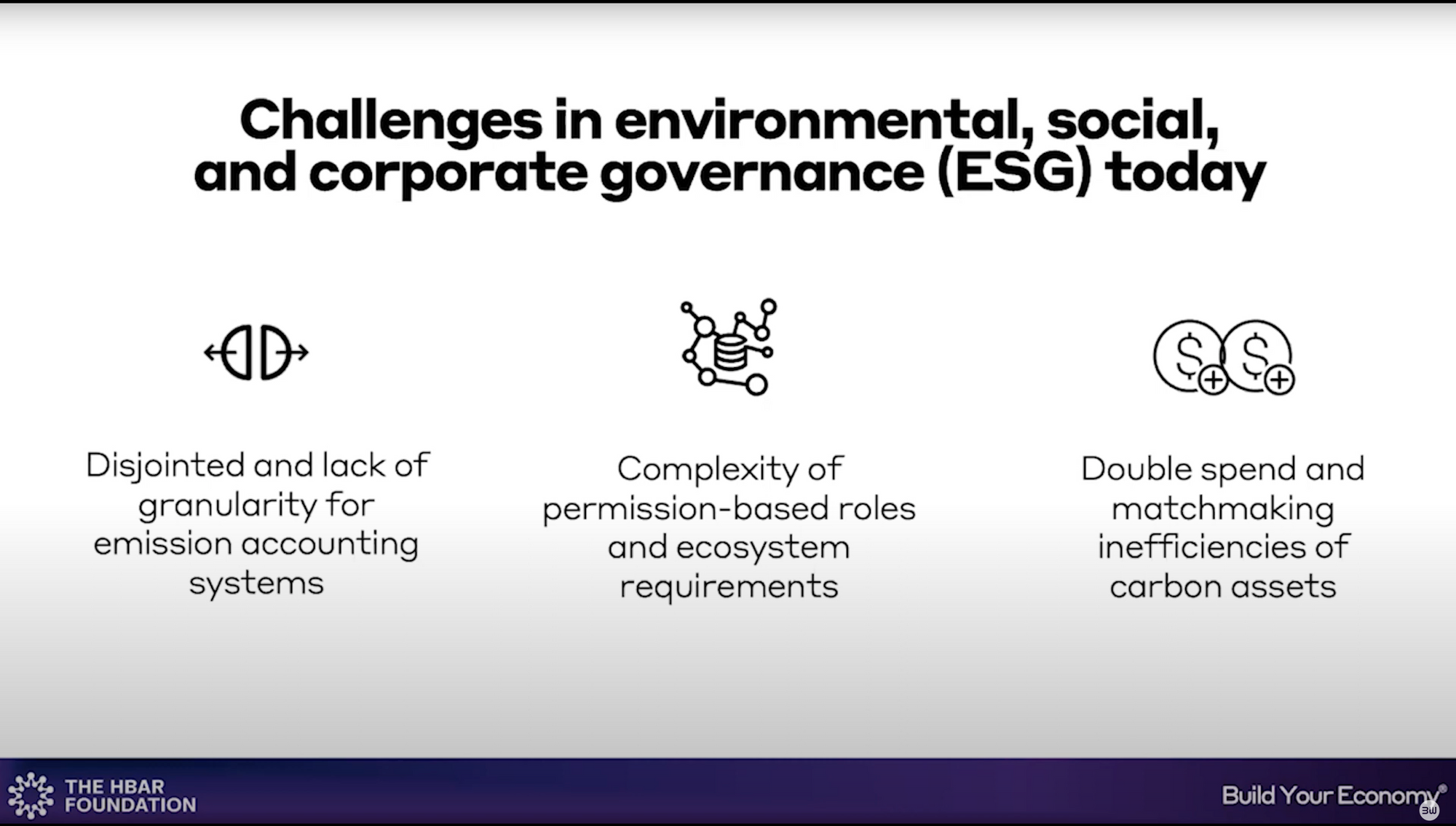
Holly Grimm-Astral Protocal cofounder spoke about open source tools including smart contracts and sustainability based bonds, verifiable spatial data registries which use hashing and anchoring through Kolektivo quadtree construct.
